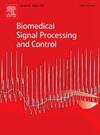基于深度学习的视网膜疾病分类,使用自编码器和生成对抗网络
IF 4.9
2区 医学
Q1 ENGINEERING, BIOMEDICAL
引用次数: 0
摘要
人类的视力在很大程度上依赖于视网膜组织,视力丧失包括视网膜感染以及治疗延误或疾病未得到治疗。从视网膜眼底图像中识别视网膜病变至关重要,诊断系统的性能取决于图像的质量和数量。此外,在使用大型不平衡数据库时,诊断很容易出错。因此,为了最大限度地减少人工干预,提高疾病诊断系统的性能,支持眼科医生进行快速准确的检查,全自动视网膜疾病预测系统必不可少。深度学习的进步在从视网膜眼底图像识别视网膜病变方面取得了显著成果。然而,传统的深度学习方法难以学习到足够深入的特征来识别轻度视网膜疾病的各个方面。为了解决这个问题,我们将基于深度自动编码器的诊断系统与基于 ResNet 的生成对抗网络 (RGAN) 相集成,以发现视网膜疾病。该集成模型利用 ResNet-50 结构生成合成图像,以处理较高的 FAR 和类不平衡相关问题,并利用深度自动编码器将视网膜眼底图片分为良性和恶性。拟议的 RGAN 生成合成图像,用于训练诊断系统和真实系统。实验结果表明,推荐的 RGAN 模型与其他流行技术相比,准确率提高了 95.6%,灵敏度提高了 96.4%,特异性提高了 97.3%,F1 分数提高了 93.4%。本文章由计算机程序翻译,如有差异,请以英文原文为准。
Deep learning based retinal disease classification using an autoencoder and generative adversarial network
Human eyesight relies heavily on retinal tissue, vision loss include infections of the retina and either a delay in treatment or the disease remaining untreated. Identifying retinopathy from retinal fundus image is a vital and diagnostic system performance depends on image quality and quantity. Furthermore, the diagnosis is prone to errors when a large imbalanced database is used. Hence, a fully automated retina disease prediction system is indispensable to minimize human intervention, increase the performance of the disease diagnostic system, and support ophthalmologists in conducting speedy and accurate investigations. Advancements in deep learning have remarkable results in identifying retinopathy from retinal fundus images. However, conventional deep-learning approaches struggle to learn enough in-depth features to identify aspects of mild retinal disease. To address this, integrates a deep autoencoder-based diagnostic system with a ResNet-based generative adversarial network (RGAN) to find retinal disease. This integrated model exploits a ResNet-50 structure to generate synthetic images to handle higher FAR and class imbalance-related problems and a deep autoencoder to categorize the retinal fundus pictures into benign and malicious. The proposed RGAN engenders synthetic images to train the diagnostic and real systems. The experimental outcomes have been implemented, and the recommended RGAN model increases the accuracy ratio of 95.6%, sensitivity ratio of 96.4%, specificity ratio of 97.3%, and F1-score ratio of 93.4% compared to other popular techniques.
求助全文
通过发布文献求助,成功后即可免费获取论文全文。
去求助
来源期刊

Biomedical Signal Processing and Control
工程技术-工程:生物医学
CiteScore
9.80
自引率
13.70%
发文量
822
审稿时长
4 months
期刊介绍:
Biomedical Signal Processing and Control aims to provide a cross-disciplinary international forum for the interchange of information on research in the measurement and analysis of signals and images in clinical medicine and the biological sciences. Emphasis is placed on contributions dealing with the practical, applications-led research on the use of methods and devices in clinical diagnosis, patient monitoring and management.
Biomedical Signal Processing and Control reflects the main areas in which these methods are being used and developed at the interface of both engineering and clinical science. The scope of the journal is defined to include relevant review papers, technical notes, short communications and letters. Tutorial papers and special issues will also be published.
 求助内容:
求助内容: 应助结果提醒方式:
应助结果提醒方式:


